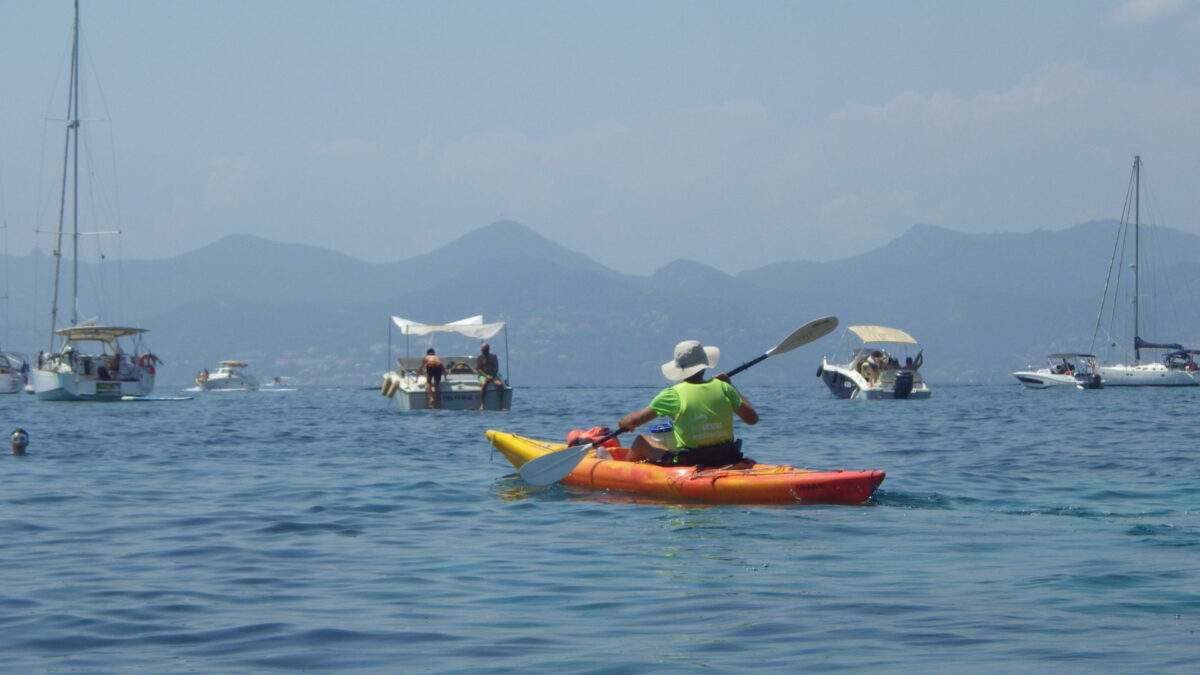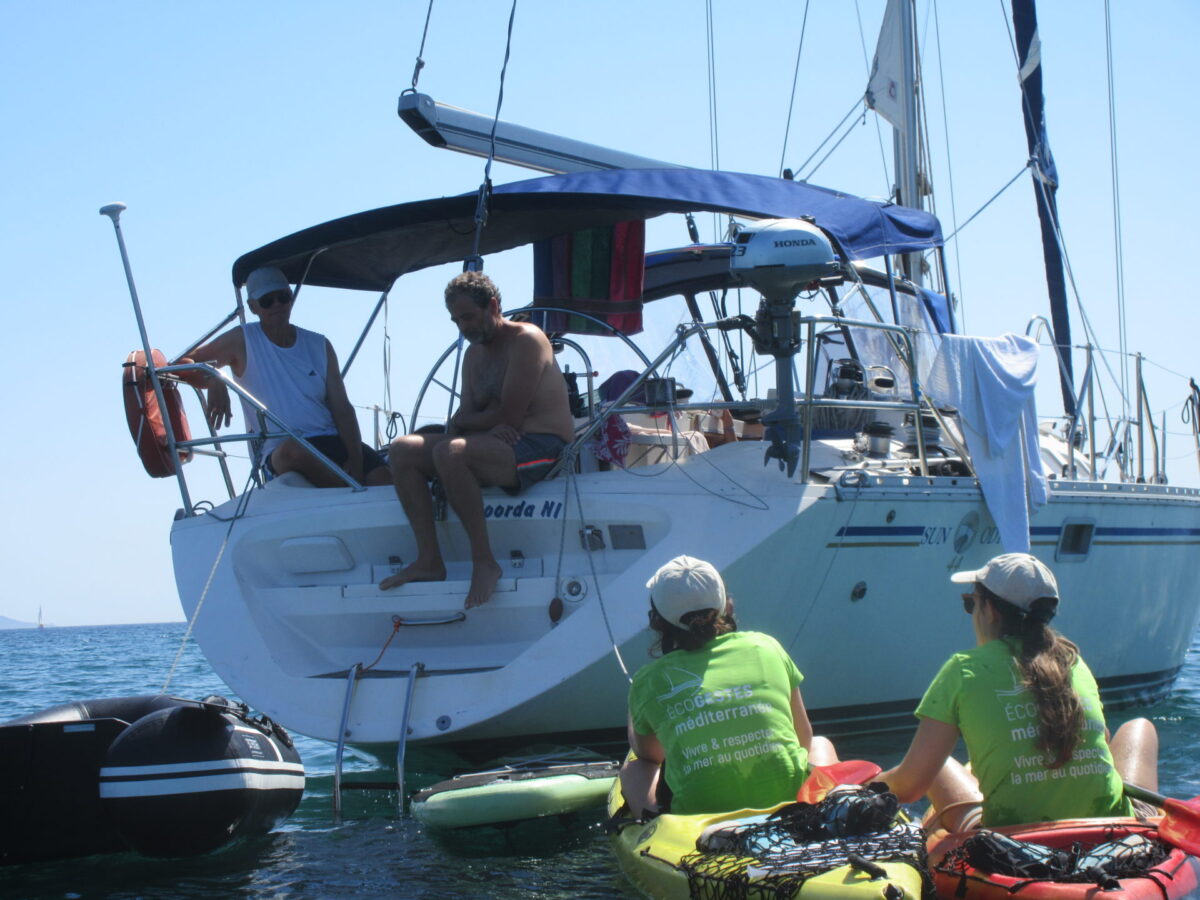The Provence-Alpes-Côte d’Azur region is one of the must-visit tourist destinations in the summer. The coastline receives up to 8 times its usual population every year. Therefore, numerous summer actions are implemented to preserve the quality of the beaches, the coastline, and the seabed in the Mediterranean. This is the case with Écogestes Méditerranée and Inf’eau Mer.

Who are they?
Écogestes Méditerranée is an awareness campaign targeting sea users, particularly boaters along the French Mediterranean coast. The goal is to encourage changes in practices (equipment and behavior) to reduce their impact on marine biodiversity.
Inf’eau mer was created in Cannes in 2001. It now takes place along the coastline of the Southern Regions – Provence-Alpes-Côte d’Azur and Corsica and offers communities a concrete action to raise awareness and inform the general public about issues related to the sea and the coast.
The 2022 campaigns.
This year, the campaigns will particularly highlight the themes of protecting Posidonia, whether at sea or on the beach, as well as raising awareness among boaters.
Indeed, about twenty sustainable development education structures and environmental managers are present throughout the summer on the beaches, in the port, and at sea to meet vacationers, swimmers, and boaters.
These interactions help raise public awareness of simple, respectful actions for the marine environment and actions to adapt to climate change in our region.
• Fun and educational stands are present at local events and on the beaches to inform a wide audience about the sea and the coast.
• Meetings with boaters and port managers are organized, both at the dock and at sea, to raise their awareness about the impact of their practices on the marine environment.
Goal: Protecting Posidonia at sea and on the beach.
What is Posidonia?
Posidonia Oceanica is a plant that lives from the surface to 40 meters deep along the Mediterranean coast.
The seagrass beds formed by this plant serve as a refuge for a quarter of the underwater animal and plant species. A true biodiversity hotspot, it produces large amounts of plant material and oxygen, traps and fixes sediments, stabilizes the seabed, and stores carbon. Furthermore, on the coast, dead Posidonia leaves accumulate and form mats that protect the beaches and mitigate their erosion. This habitat thus provides many terrestrial species with a place to reproduce and feed.
Raising awareness among boaters.
Boating holds a significant place among coastal activities. However, inadequately informed boaters can affect the marine environment through their activities. It is therefore important to raise their awareness of the impacts of their uses and guide them toward more respectful behavior concerning marine ecosystems.
Several interventions took place this July on the Côte d’Azur.
Small actions to support marine seabed protection.
- When protecting myself from the sun, I prefer using a sunscreen lotion rather than an oil or cream to limit the dispersion of a greasy product on the surface, as these products hinder photosynthesis underwater.
- As a boater looking to clean without polluting, I can minimize my impact by using cleaning products and soaps that are plant-based or ecolabeled.
- I accept that a selective cleaning of the beach is performed by the communities, meaning accepting that natural elements left by the sea, such as Posidonia leaves or balls, should be left in place during cleaning.
- To ensure I do not degrade the seabed, when anchoring my boat, I avoid anchoring in Posidonia seagrass beds. I look for sandy areas and position the boat over the anchor before lifting it.
For more information, visit the Écogestes Méditerranée and Inf’eau Mer websites.


